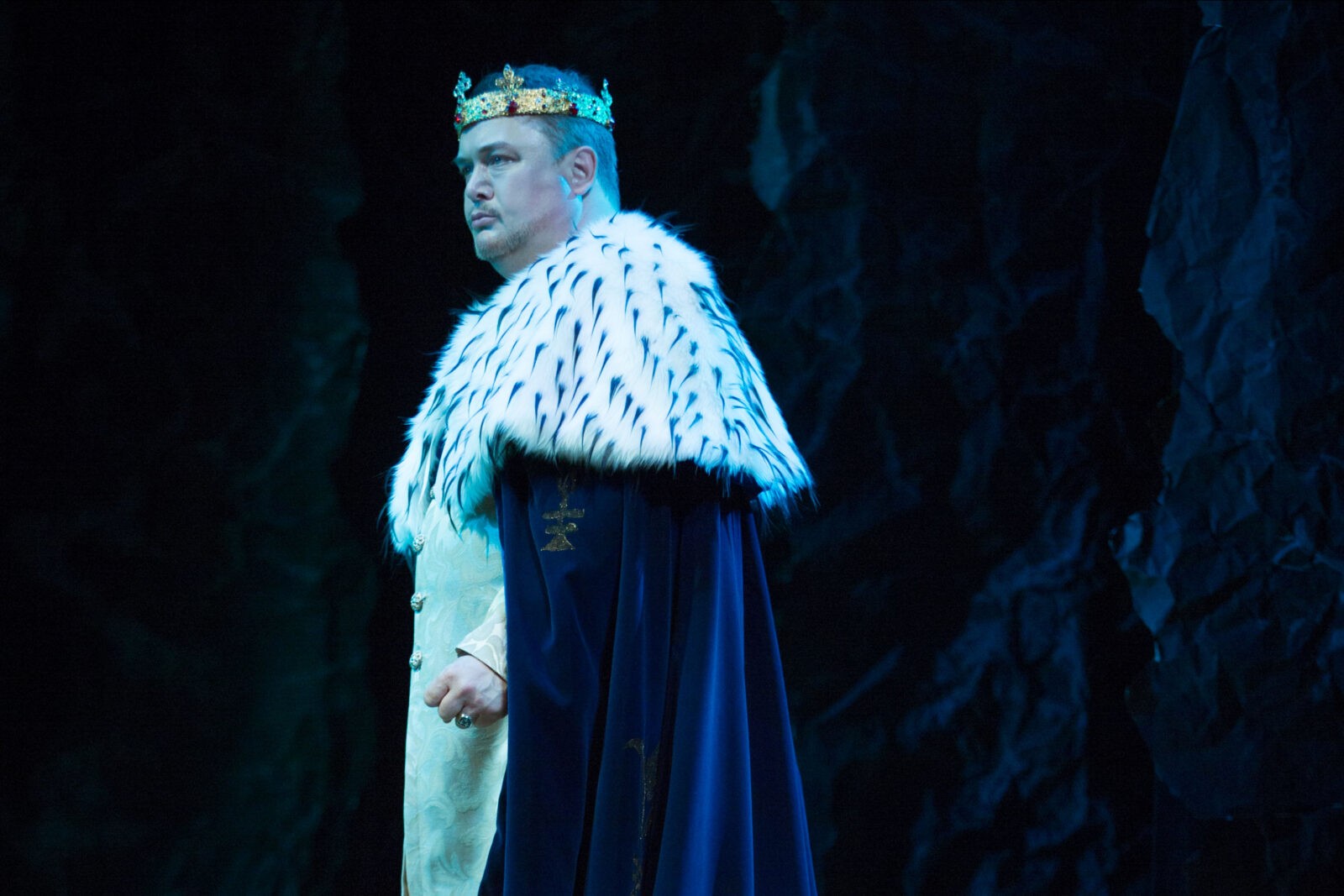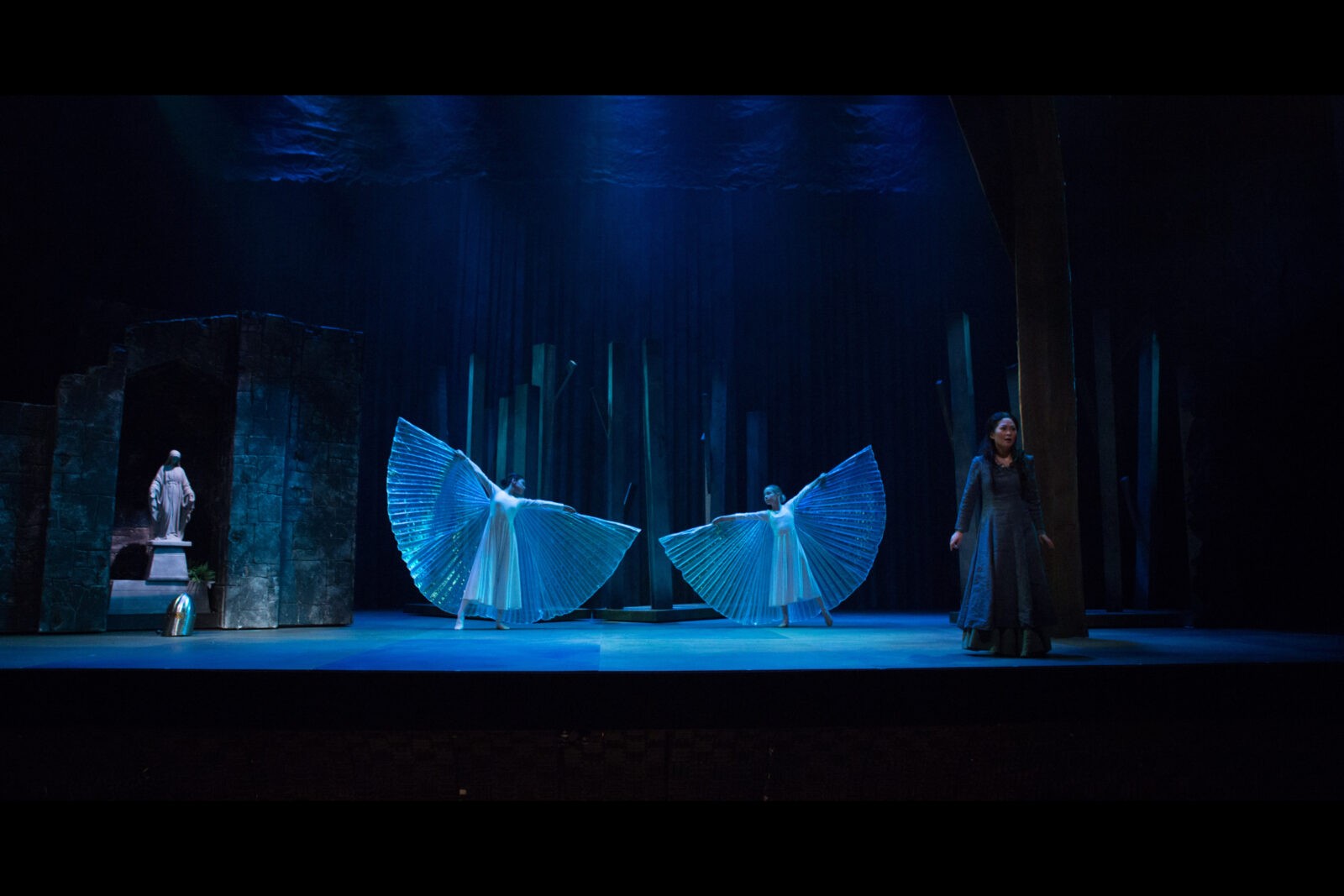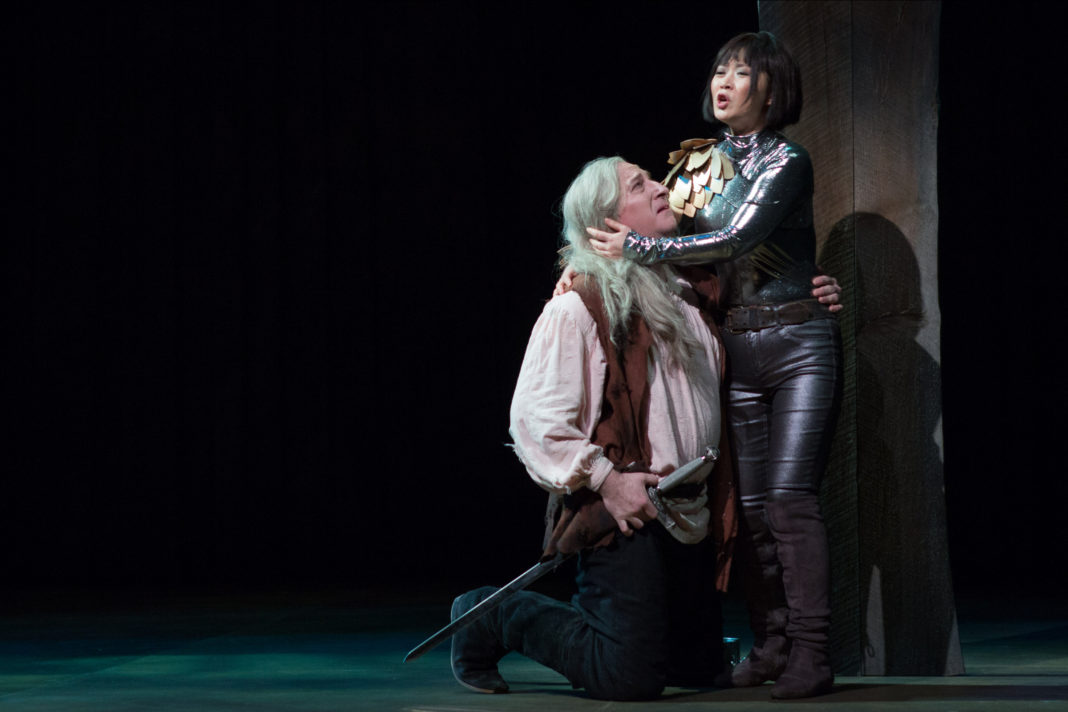Odyssey Opera comes full circle closing its season “Trial By Fire“ with another opera rooted in Schiller’s Die Jungfrau von Orléans, Giovanna d’Arco. Verdi’s seventh opera is an uneven, retrograde effort which fails to mine further the rich vein he had struck in Ernani. The composer merely set what his librettist wrote, asking for no revisions, and seemed content to replicate their previous successes, Nabucco and I Lombardi alla prima crociata, by following the same formula. Temistocle Solera, for his part, used little from Schiller and reduced Giovanna’s story to a conventional domestic drama in which religion plays little part and the idea of demonic possession drives the plot. The clumsy, brusque libretto sacrifices dramatic and psychological plausibility for the sensationalistic theatricality of ensembles and grand, choral tableaux.
Gil Rose used Alberto Rizzuti’s 2013 critical edition of the score, previously performed to open La Scala’s 2015-16 season. His orchestra of 43 (including a cimbasso) spilled out of the pit, bookended by bass and snare drums on the floor to the left and the timpani on the right. The harp and an electronic keyboard subbing for the harmonium were in the commodious balcony-level box to the left. The angelic choir, with female voices replacing the usual children, sang from the corridor outside the box. For some reason, perhaps pertinent to access, the empty box on the other side was not used for the chorus of demons to complete the stereo effect. They sang from the stage-left wings. The intimacy of the Huntington Theatre and the balance and clarity of the playing brought touches of the orchestration to light, particularly the ingenious interplay amongst the woodwinds. The pit also played all the offstage music. Rose kept the orchestra’s energy high and rhythms supple, endowing ensembles with the drive of dramatic inevitability. They and the stage director made the best case possible for this uneven score, along with the chorus, so crucial in this opera. Odyssey’s 10 women and 16 men sang with fire and conviction and the impact of a group many times their size.

Giovanna is the first Verdi heroine to emerge as a complex, fully realized individual. Her role does the most to raise this opera above the routine and ordinary. Odyssey was fortunate in its choice of Haeran Hong, whose acting was intense and focused; she moved with both purpose and grace. The voice is seamless, and strong from top to bottom; the registers well integrated, the top gleaming and full. She excels at expressive ornamentation and her technique allows her to sing with abandon when dramatically necessary. There is definitely a Violetta in her future.
The space next to Carlo VII on Odyssey’s website remained intriguingly blank less than a month before opening night. Built like a linebacker and blessed with a powerful spinto voice notable for its distinct baritone timbre, Marc Heller put Otello firmly in the line of Valois succession. He sang well, but his voice lacked the fluid, lyric quality, dynamic variety, and smooth legato Carlo requires. Its strong, baritonal quality and his imposing stature suggested more a threat or a father figure than a lover, introducing an unintended, yet nonetheless unsettling, subtext to his interactions with Giovanna. Daniel Sutin’s dense, oaky baritone is perfect for Verdi but he, like Heller, rarely sang less than forte and often overacted. Both men leaned too heavily on broad, emphatic, and all-too-familiar gestures as if telegraphing to the Met’s Family Circle. Their voices were pitched to the same non-existent expanse. More measured acting and singing would have banished the pall of sameness shrouding their contributions. As usual, Odyssey filled out its cast with young Boston-based singers. Both Christopher Carbin and Jeremy Ayers Fisher are testimony to the rich vocal resources local opera companies can tap now and in the future.

Costumes were colorful, simple, and skillfully evocative of peasants soldiers, nobility, and clergy. Grey, thick timbers studded at an angle with thick dowels served as constant set decorations, standing for trees and basic architectural details. A stone grotto for the Virgin’s shrine, cathedral window tracery and other set dressing complemented the redeployed timber to efficiently and effectively create the six different settings. Lightning flashed and thunder rolled when required and the haze of battle rolled into the English camp, but the most striking effect accompanied Giovanna’s ascension. The central section of the black back-curtain slowly rose to reveal a cascade of clear plastic tubing gradually glowing with a golden light. As Giovanna died, she threw off her cloak revealing a gold, pleated capelet. Arms raised, it became the wings to carry her to Paradise, as she slowly walked towards the light and the stage darkened.

























